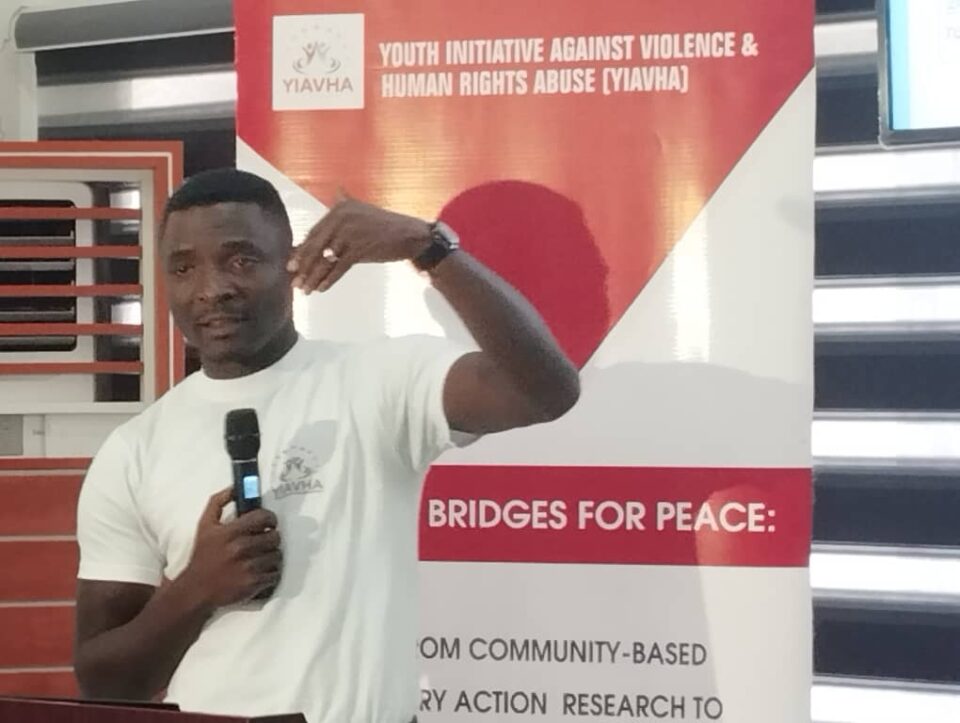By Pwanagba Agabus, Jos
Since the return of democratic structures in 1999, many communities in Plateau State especially in the Northern Senatorial Zone have grappled with the issues of insecurity; which has claimed so many lives, properties and farmlands destroyed.
Sadly, cultivated farms were destroyed all in the name of farmer-herder clashes, which have kept many communities apart for over two decades.
Efforts have been made by various stakeholders to bring to an end this ugly trend, but have yielded little or no result.
However, in efforts to help stem the tide, the Community Participatory Action Research (CPAR) project was conducted by the Youth Initiative Against Violence and Human Rights Abuse (YIAVHA) with focus on analysing violent conflicts in Riyom LGA, Plateau State, Nigeria, has been working in some communities to help halt the trend.
Part of the system is that both the herders and farmers, cultivate farms together nurture it and share the yield together.
Another aspect was intergenerational dialogues for youths (Berom and Fulani) on how they have hitherto harmoniously coexisted peacefully.
Speaking at the presentation of the dissemination exercise of a report “Community based participatory action, research to promote socio-economic integration and cohesion in farmer-herder conflicts”, Executive Director YIAVHA, Pwakim Jacob Choji, said, “Utilising a systems analysis approach, the study explored the key driving factors (KDFs) contributing to the persistence of farmer-herder conflicts and other violence in the area.
According to him, “This research was carried out across eight conflict-affected communities, with the ultimate goal of identifying the causes and co-developing solutions to foster peace and reconciliation.
“The research was informed by both qualitative and quantitative data gathered through workshops, community engagements, key informant interviews (KIIs), and various dialogues.
“Key findings highlighted the recurring cycles of displacement, substance abuse, vigilante justice, and arms buildup as significant KDFs.
“The study also noted that perceived ethnic and religious biases had further worsened community tensions”, he explained.
“This breakdown of trust has disrupted traditional conflict resolution mechanisms, increasing the preference for vigilante justice over formal processes.
“In response to these findings, the CPAR proposed a range of interventions aimed at addressing these KDFs.
“Recommendations included promoting collaboration between the government, traditional authorities, non-governmental organisations and other stakeholders to address the KDFs, enhancing civilian-led dialogue and mediation community platforms, addressing substance abuse, integration of economic empowerment to peacebuilding initiatives, implement inclusive resettlement interventions to address displacement, enhance government intervention in rural communities, address arms buildup and disarmament, and prioritising youth and women in peacebuilding efforts amongst others”, Choji maintained.
“The project also explored the potential of joint farming initiatives and intergenerational dialogues as tools to rebuild trust and foster long-term peace between divided communities”, he stressed.
On the need to implement inclusive resettlement interventions, as part of the recommendations of the report, the Executive Director said, “Though there is a resettlement committee established by the government of Plateau state under the leadership of Governor Caleb Mutfwang, there is a need to ensure that the resettlement committee considers both farmers and herders who have been displaced.
There should be the support of the donor community and other philanthropies so as to rehabilitate and reintegrate these communities”, he admonished.
Resettlement is beyond the building of houses but the humanization of the settlements to avert both intra and inter violence.
Adding that, “There are many people that have lost relatives, farmlands, and means of livelihood thereby finding it hard to live by such realities.
“The resettlement will avert the gravitation of aggression, frustration and grievances to terrorism and extremism.
On integrating economic empowerment into peace interventions as a recommendation, Choji said, “To ensure sustainable peace and prevent recurring cycles of violence, there should be the integration of economic empowerment strategies like the Livelihood Support Programs such as agricultural grants, vocational training, access to market, skill-building training, and economic incentives for peace building grants.
“While training and peace meetings are essential for dialogue and conflict resolution, they are insufficient if people remain trapped in cycles of poverty.
“Based on the findings from this research, it has been observed that significant resources are allocated to training sessions, peace meetings, and capacity-building programs, yet the long-term impact on conflict resolution remains unaddressed.
“One critical gap identified is the near absence of economic empowerment initiatives that directly address the poverty and deprivation which fuel conflict in these communities.
He further stated that, “While implementing this recommendation, it’s important to integrate a community driven approach to empowering the people in peace intervention, there should be a transparent process of disbursing funds for community engagements.
“This will limit instances where some few will take decisions to their benefit”, he further stressed.
Speaking at the event, Governor Caleb Mutfwang, represented by his Special Adviser on Budgeting, Mr OJ Afwangs, commended YIAVHA for conducting the research aimed at mitigating violent conflicts in the state.
Afwangs, said government would ensure sustained collaboration with development partners.
Adding that the state had initiated moves toward ensuring lasting peace in all its nooks and crannies.
Below are the communities the intervention took place; Jol, Mahanga, Ngyelgagare, Rim, Kwi, Fass, Rinyan and Bangai.



